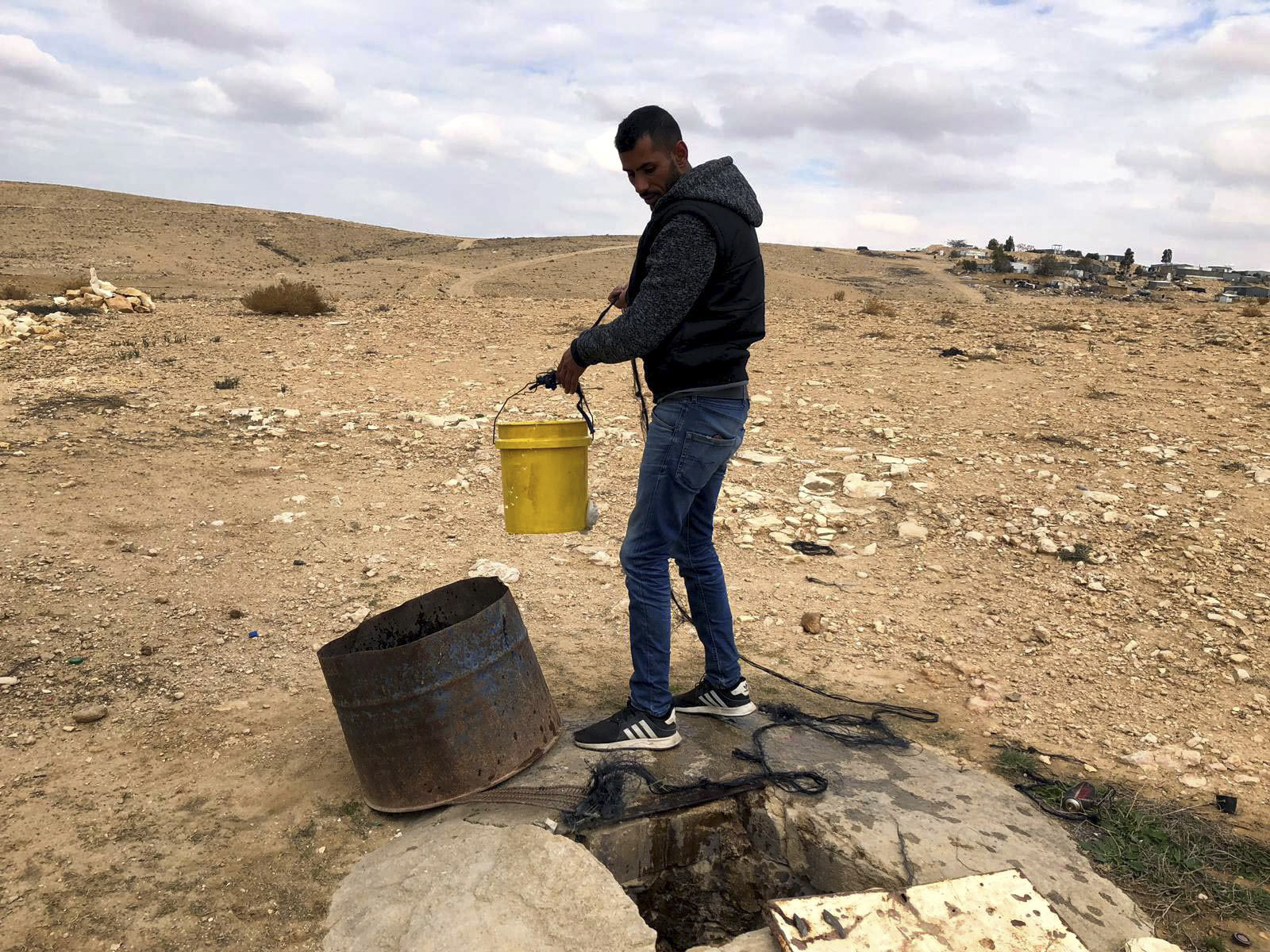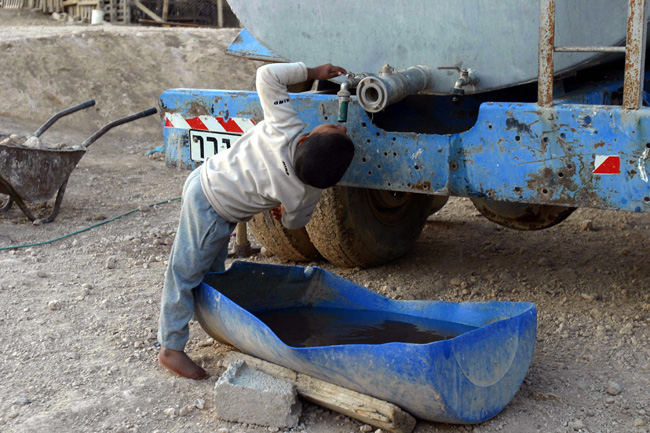Israel charges Bedouin living in unrecognized Naqab villages the highest water prices in the country
Palestinian Bedouin citizens of Israel living in unrecognized villages in the Naqab (Negev) region pay more money for drinking water than any other citizens in the country. Adalah – The Legal Center for Arab Minority Rights in Israel, together with the Association for Civil Rights in Israel (ACRI) and the Negev Coexistence Forum (NCF), sent a letter in December 2019 to Israel's Water Authority demanding equal pricing of drinking water.

A Bedouin man draws water from a wall in an unrecognized village in the Naqab region. (Photo by Ari Remez)
The current method for water pricing relies on a distinction between the recognized amount of consumption (which is priced at a low rate) and an excessive amount of consumption (which is priced at a high rate - almost double the normal rate).
Since there are no private water connections in unrecognized Bedouin villages, Israel's Water Authority automatically charges residents with the higher rates, treating them as if they are wasting water when, in fact, they constitute the group with the most limited access to water.
Meanwhile, the Water Authority treats kibbutzes (collection agricultural communities in which only Jewish Israelis live) in a totally different way. Although there are also no private, individual household connections to water in many kibbutzes in the Naqab, their residents nevertheless pay normal water prices based on declarations regarding the number of persons per household.
Adalah and partners argued that the Water Authority’s policy lacks a legal basis, and is arbitrary and discriminatory.
Adalah’s legal intervention led to the reconnection of the water supply for 400 residents of the Naqab Bedouin community of Khashem Zanneh. In October 2019, the Water Authority cut the water at a connection point that serves the villagers, claiming that they had not paid their bills; in fact, the local representative had not transferred the money.














